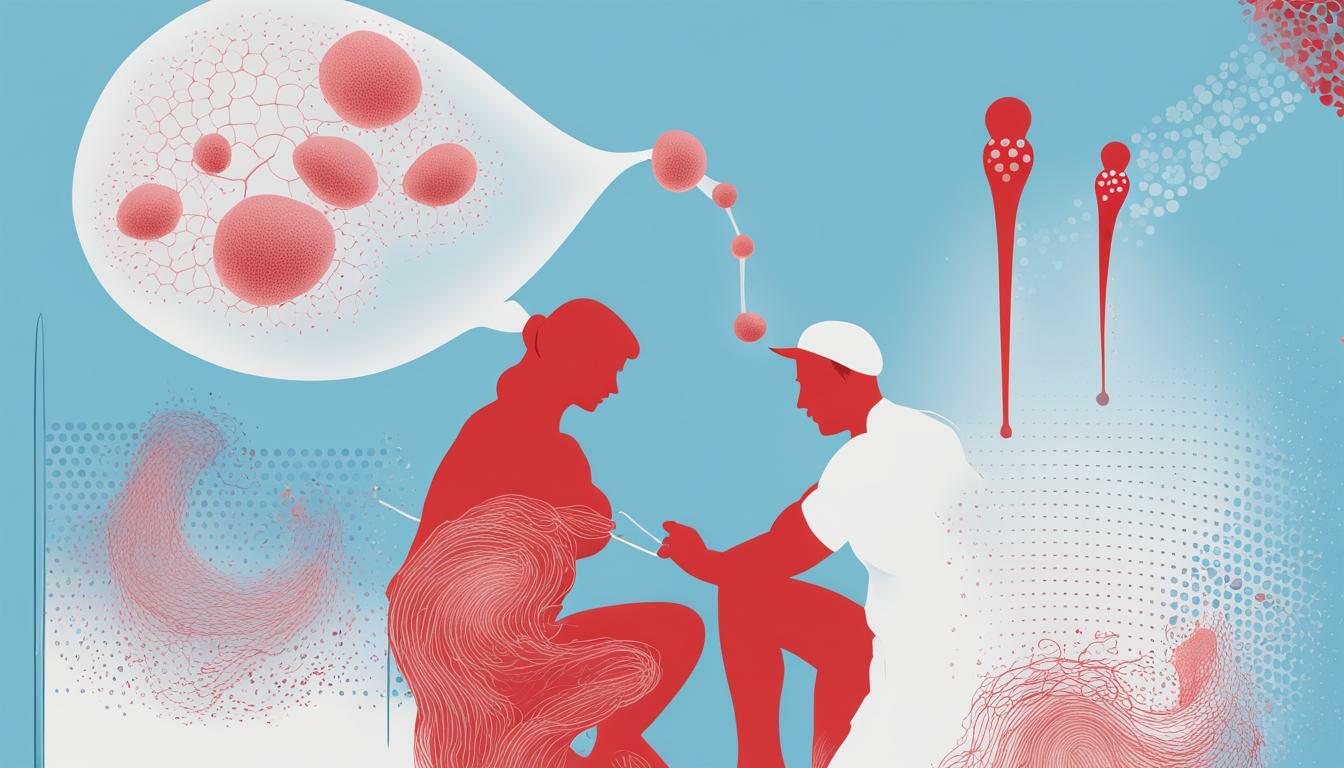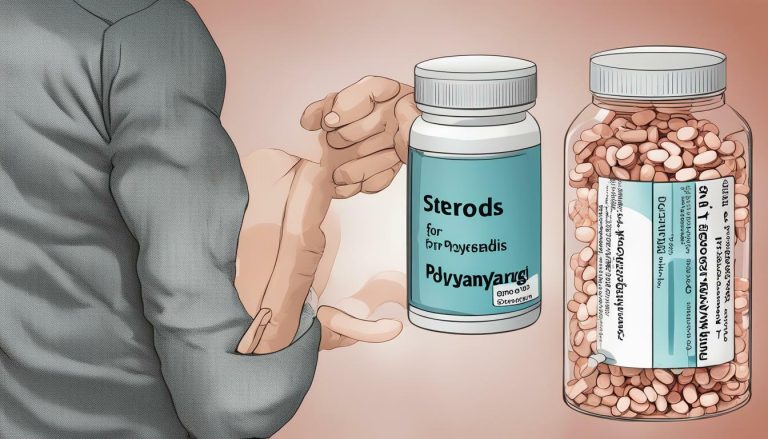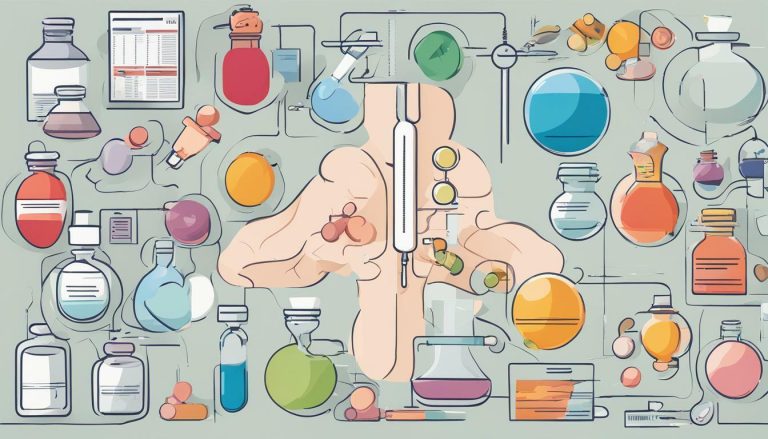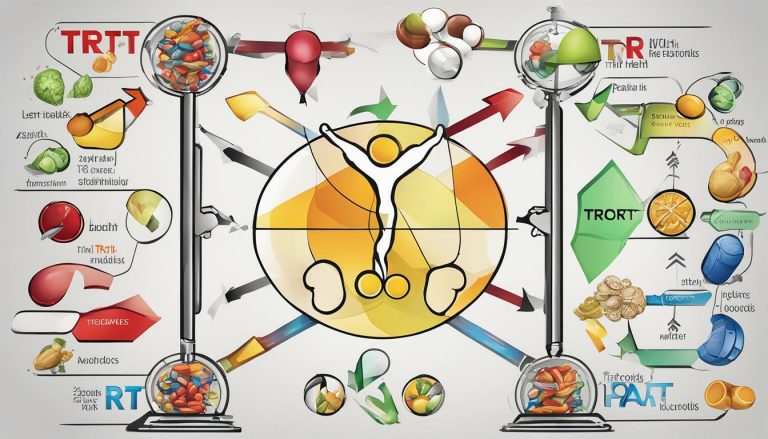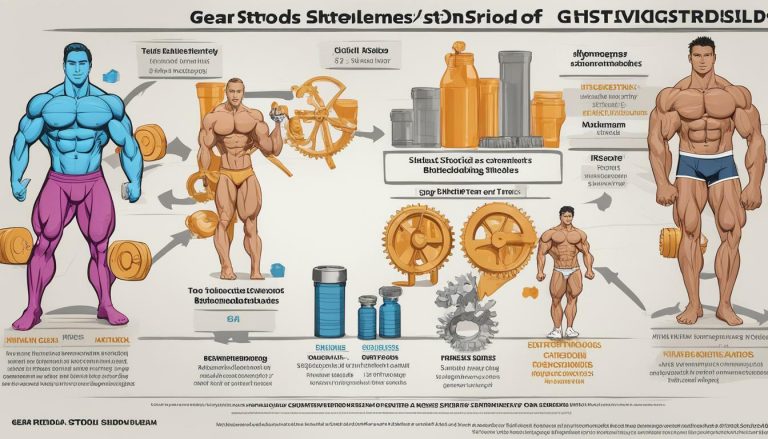How Long Does It Take for Steroids to Affect Sperm? Find Out.
Steroids are a type of drug that is commonly used to help build muscle mass or treat medical conditions such as asthma and arthritis. However, the use of steroids can have a negative impact on sperm health, which can lead to fertility issues. In this article, we will explore how long it takes for steroids to affect sperm and the potential impact on sperm health.
When steroids are introduced into the body, they can disrupt the normal production of hormones, which can ultimately impact sperm health. This disruption can lead to a decrease in sperm count, a reduction in sperm motility, and a decrease in sperm viability. Let’s take a closer look at the timeline for these effects.
Key Takeaways:
- Steroid use can negatively impact sperm health.
- Steroids can disrupt the normal production of hormones, leading to a decrease in sperm count, motility and viability.
Timeline for Steroid Effects on Sperm
When it comes to the impact of steroids on sperm health, one of the most pressing questions is how long it takes for these substances to affect sperm. The answer, as with many things related to steroid use, is not straightforward.
The timeline for steroid effects on sperm can vary depending on a number of factors, such as the type of steroid used, the dosage, and the individual’s genetics and lifestyle. However, there are some general patterns that have been observed.
When do steroids start affecting sperm?
Research suggests that steroid use can begin to affect sperm as early as two weeks after starting a cycle. This is because steroids can disrupt the delicate balance of hormones in the body, which can in turn impact sperm production and quality.
It’s worth noting that this timeline may differ depending on the specific steroid being used. Some steroids, such as testosterone, may have a more immediate impact on sperm, while others could take longer to show effects.
Duration of sperm changes caused by steroids
Another important factor to consider is how long the effects of steroids on sperm can last. Again, this can be highly variable depending on the individual and the specific steroids used.
In general, it’s thought that the impact of steroids on sperm quality can last for several months after discontinuing use. One study found that some men who had used steroids had lower sperm count and motility for up to a year after stopping use.
It’s worth noting that not all men who use steroids will experience negative effects on their sperm, and some may not notice any changes at all. However, given the potential risks, it’s important to be aware of the possible impact on fertility and overall reproductive health.
Steroids and Sperm Quality
Steroid use can have a significant impact on sperm quality, including viability and overall health. Studies have shown that the effects of steroid use on sperm can last for several months after discontinuing use.
The use of anabolic steroids can lead to decreased sperm count, decreased sperm motility, and abnormal sperm morphology. These factors can all contribute to infertility and decreased reproductive function in males.
One of the main ways that steroids can affect sperm quality is by disrupting the body’s natural hormone balance. Testosterone is an important hormone for sperm production, and steroid use can disrupt the normal production of testosterone in the body.
Additionally, steroids can cause oxidative stress, which can damage sperm cells and decrease their overall health. This can also lead to decreased sperm viability and contribute to male infertility.
It is important for individuals who are considering or currently using steroids to be aware of the potential impact on their sperm health. Consulting with a healthcare professional can provide valuable information and assistance in maintaining reproductive health.
Steroids and Sperm Motility
The impact of steroids on sperm motility can vary depending on the individual and the dosage. In some cases, changes in sperm motility can occur within weeks of starting steroid use and can last for several months after discontinuing use.
Research has shown that anabolic steroids can significantly reduce sperm motility, which can in turn affect fertility. It is important to note that not all sperm may be affected equally, with some showing only mild changes while others may experience a complete loss of motility.
The timeframe for steroids to affect sperm motility can also depend on the type of steroid being used. Some steroids may have a more immediate impact while others may take longer to affect sperm motility.
| Type of Steroid | Timeframe for Sperm Motility Changes |
|---|---|
| Testosterone Enanthate | 2-4 weeks |
| Trenbolone | 2-4 weeks |
| Stanozolol | 2-4 weeks |
| Methandrostenolone | 4-6 weeks |
It is important to note that even after discontinuing steroid use, it can take several months for sperm motility to return to normal levels. In some cases, it may never fully recover.
Furthermore, steroids can also impact the overall fertility timeline for men. In addition to reducing sperm motility, steroid use can also decrease sperm count and affect sperm morphology, potentially leading to infertility.
If you are considering using steroids, it is important to discuss the potential impact on fertility and sperm health with a healthcare provider.
Conclusion
In conclusion, the use of steroids can have a significant impact on sperm health. The timeline for steroid effects on sperm may vary, but they can last for several months to even years.
Steroid use can affect sperm quality, reducing their viability, and leading to a decrease in fertility. Sperm motility can also be impacted, which can further complicate the ability to conceive a child.
It is crucial to understand the potential risks associated with steroid use and seek medical advice before beginning any treatment. While steroids may have some benefits, they can also have severe long-term consequences that can impact fertility and overall health.
Speak to a Healthcare Professional
If you are concerned about the impact of steroid use on your sperm health and fertility, speak to a healthcare professional. They can provide valuable information on the risks associated with steroid use and advise on alternative treatments or solutions.

